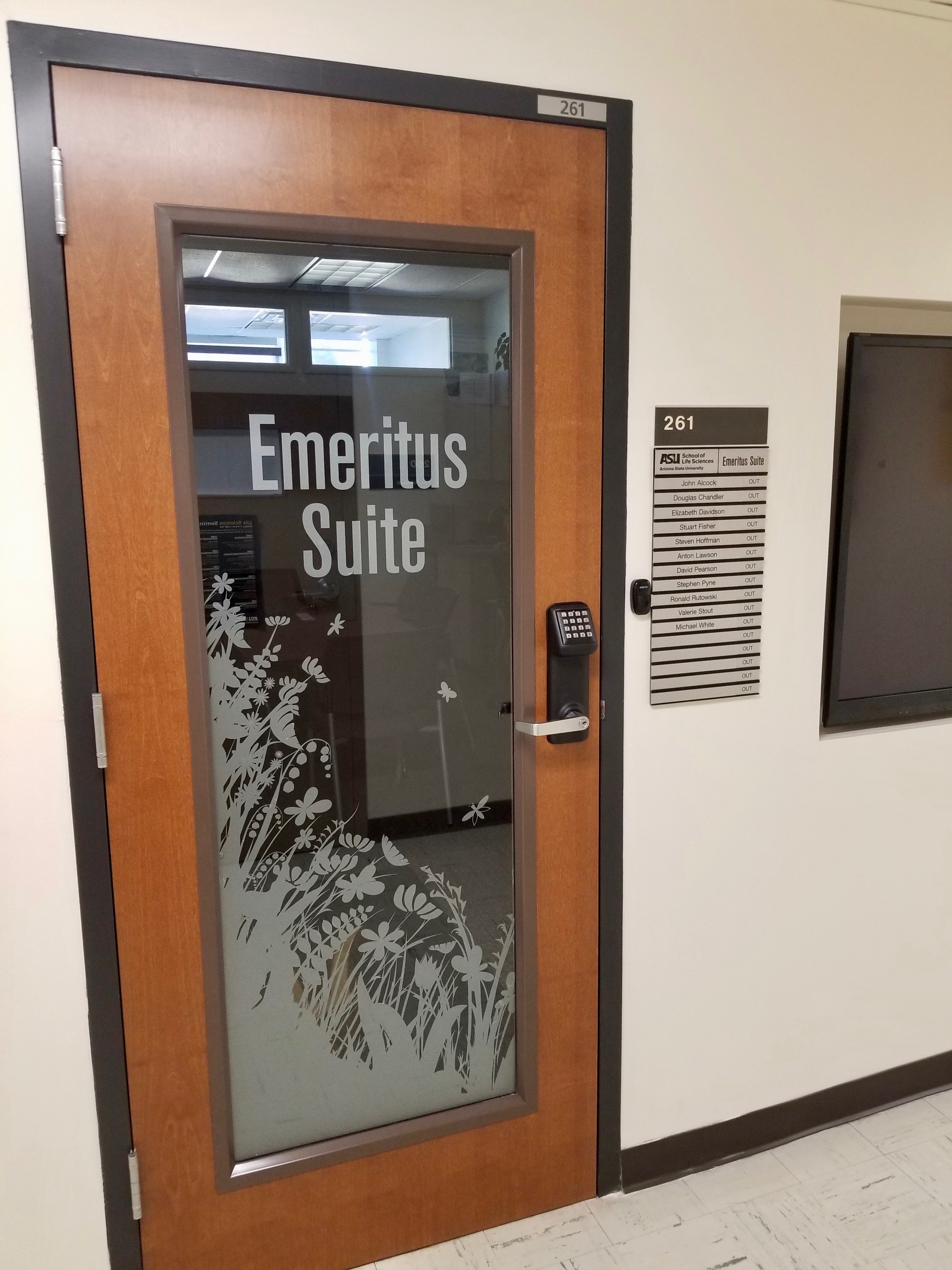New Emeritus Suite opens in School of Life Sciences

Ron Rutowski, an emeritus professor with the ASU School of Life Sciences, remains an active mentor and teaches regularly in graduate courses and in adult learning classes. He recently moved into the newly remodeled Emeritus Suite in the School. Photo by Jacob Sahertian/ASU VisLab
Academics spend decades doing research, teaching and public outreach. When they finally reach retirement, many choose to stay involved in their fields and continue serving as mentors, even if they don’t maintain an active lab.
However, their offices are often spread throughout several buildings or on different floors, and opportunities to engage with their colleagues become more difficult once faculty members retire.
But the Arizona State University School of Life Sciences has opened a new, innovative Emeritus Suite with the goal of creating opportunities for collaboration and building upon decades of expertise and knowledge.
Kevin McGraw, a professor with the school and associate director of facilities, spearheaded the effort, along with facilities staff members. They converted several offices into a suite with communal space, desks and some larger, individual offices. To date, 10 emeritus professors have joined the suite.
“We thought it would be a neat initiative to bring everyone together and inspire many collaborations, cooperation and lifelong learning by activating a single space that has a bit of a mixed model to the housing arrangements,” McGraw said. “We have the ability to place individuals in their own offices if they are still very active with grants and mentoring, or maybe in some intermediate space where they have their own desk in a shared location and they visit weekly or monthly. In addition, we have a larger social area with desks and computers where people might come in a few times a year to interact with their peers and get some work done.”
The new 1,000-square-foot suite is currently set up to house 12 emeritus professors. The recently opened suite is located near three active research centers that the school hopes will provide inspiration and interaction.
Ron Rutowski, a recently retired School of Life Sciences professor who remains actively involved studying coloration in animals — in particular, butterflies — said the space is vibrant and he’s pleased to have space as part of the suite.
“It’s outfitted nicely and laid out nicely. I’m using my office regularly,” Rutowski said. “If nothing else, I hope this draws attention to the fact that there are emeritus faculty who are around and active and available for whatever people think we might do. I still serve on graduate student committees and give occasional guest lectures in colleague’s classes. I still use my expertise in graduate-level classes as well.”
Joseph Carter, dean of the Emeritus College at ASU and professor emeritus with W. P. Carey School of Business, said 40% of tenured faculty are age 60 or older. By intentionally setting aside space for emeritus faculty, Carter said the investment will pay off.
“I’m very impressed by this space. It’s a deliberate commitment to utilize emeritus faculty who by definition are well-renowned and dedicated to the school. And use them as an asset not only for themselves but also for the school and the university’s goals,” Carter said. “People are living longer, people are staying active, and people want to continue to contribute. Maybe they won’t want to hold down a tenure track position and all the administrative work that goes with that, but want to continue their academic pursuits. And there are some that just want to go spend time with their grandkids, and that’s OK, too.”
More Science and technology

America stress-tested its food system, and it mostly held
In the spring of 2020, Americans watched grocery store shelves empty in real time. Flour vanished. Meat became scarce and…

ASU helps communities envision solutions for nuclear waste
Nuclear energy is getting another look.With rising energy demand — driven in part by AI-related data centers — the United States…

Time-consuming task of conserving Jane Goodall Institute field notes gets a boost from AI
Arizona State University is continuing the legacy of scientist, conservationist and ethologist Jane Goodall by bringing decades…



